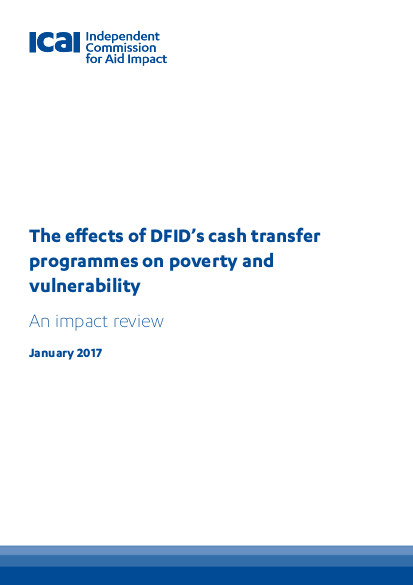Impact Review

Cash transfers play an increasingly important role in the fight against global poverty. In 2014, developing countries provided cash transfers to 718 million people. Their primary purpose is to alleviate extreme poverty by supplementing the income of the poorest households, enabling them to increase their consumption of food and other basic items. They can also promote other benefits, including increased use of education and health services and empowerment of women. Cash transfers are an important element of national social protection systems.
In this review, ICAI explores the impact of DFID’s cash transfer programmes on poverty reduction over the period 2011 to 2015. There have been 28 such programmes, the majority of which support national cash transfer schemes and involve both direct funding for cash transfers and technical and financial support for system building. These programmes all aimed to mitigate extreme poverty and improve nutrition, as well as to achieve a range of other programme-specific objectives.
The review found that the transfers – which include any regular payments made to individuals or households – had consistently increased incomes and consumption levels among some of the world’s poorest people, and presented a strong value for money case.